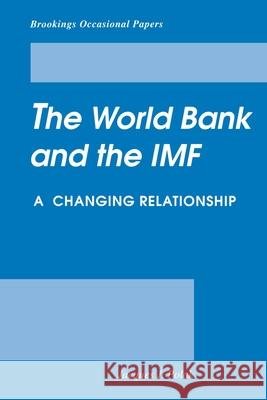The World Bank and the IMF: A Changing Relationship » książka
The World Bank and the IMF: A Changing Relationship
ISBN-13: 9780815771494 / Angielski / Miękka / 1994 / 68 str.
In this book, Jacques J. Polak describes and analyzes the relationship between the World Bank and the International Monetary Fund (IMF) from the Bretton Woods conference in 1944 to the present. In their first three decades, the two institutions engaged in clearly distinct activities: the Bank made long-term loans to finance infrastructural projects in developing countries, while the Fund gave economic advice and short-term stabilization loans to both industrial and developing countries. But since the mid-1970s, the separate lives of the two "Bretton Woods Sisters" have become increasingly entangled and the demarcation lines between them have often become blurred. Polak focuses primarily on this period of the last fifteen to twenty years when many developing countries struggled with problems of adverse terms of trade, high interest rates, and debt; and both the Fund and the Bank strove to meet these countries' pressing needs for macroeconomic stabilization and structural adjustment. The book discusses in detail the origin of the conflicts between the institutions arising from their overlapping activities that culminated at the end of the 1980s and the measures taken since then to diffuse these conflicts. A Brookings Occasional Paper











